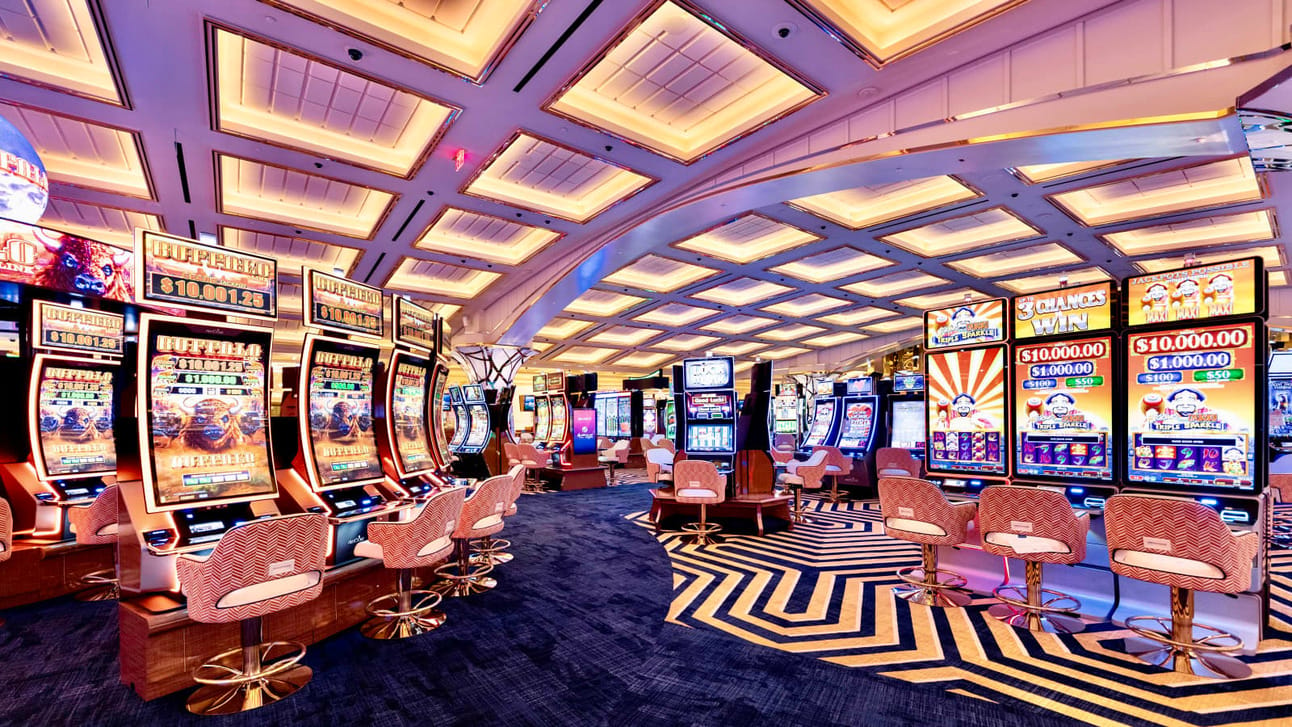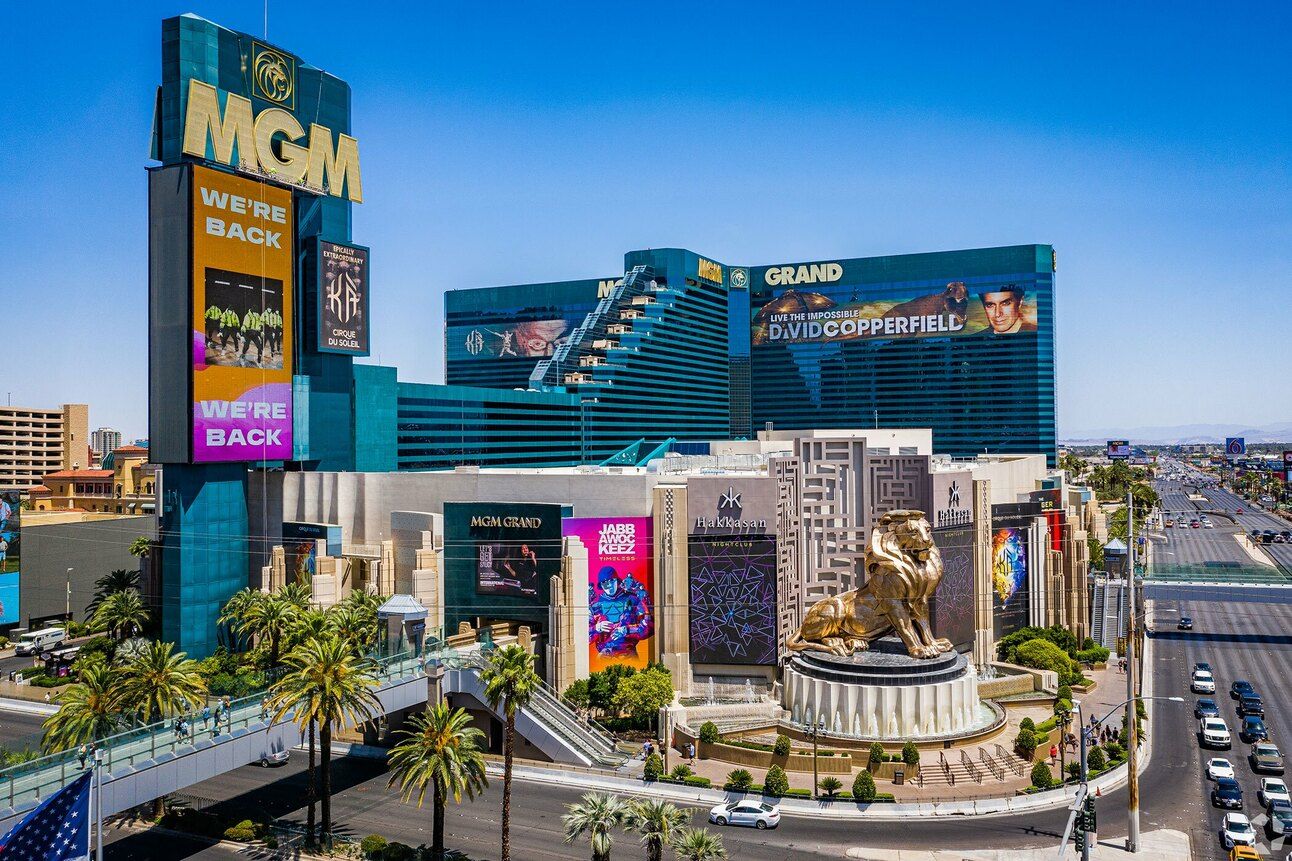Casino Industry Deep Dive
Share
Casino Industry Deep-Dive |
|
|
|
Intro |
|
|
It’s three years after the pandemic, but it’s looking like casinos are back and better than ever. In fact, last year in 2022, Vegas casinos raked in 25% higher revenue than even 2019’s pre-pandemic levels. |
|
|
Casinos’ business models are truly wild. Many hoped American casinos would become upscale, classy destinations like Monte Carlo or the Bahamas. But many gambling destinations like Las Vegas and Atlantic City nevertheless made their name catering to lower-class degenerates rather than elite, ‘classier’ gamblers. |
|
|
And make no mistake about it - casinos are big business. They just don’t want you to know that. The house always wins, but how do you balance maximizing profits and keeping visitors on their toes? After all, if everyone’s losing money and feeling ripped off, these resorts would go out of business. |
|
|
Over the past couple of decades, casinos have sprung up all over the country. And they’ve perfected the balance of making money. By shifting the odds slightly in favor of the house, and raking in cash from drinks and other entertainment, they’ve turned these resorts into profit machines. |
|
Business Overview |
|
|
The gambling industry is one of the more unique business models in the United States. Some casinos even give away (“comp”) rooms and provide car services and will fly ‘high-rollers’ on private jets to get them into the building. |
|
|
There’s no doubt a casino’s bread-and-butter are its games. The seemingly simple games like poker, blackjack, and roulette provide serious dough for casinos. They’ve been around for centuries and are the foundation for how the industry got its start. |
|
|
And who could forget slot machines and sports betting? And while new and intricate games are always popping up in casinos, it’s really the seemingly simple games that are profit machines. |
|
|
A casino’s most profitable game is arguably the slot machine. Slots are one of the quickest games to play - they’re usually played individually and players can become entranced and spend hours trying their luck. And since slots are computerized, their payouts can be meticulously adjusted to favor the casino. |
|
|
Every casino game, except for Blackjack (which can be outsmarted by counting cards) and poker (where the house collects a predetermined percentage from each pot or charges a fixed fee to use their tables), is designed to generate profits. Therefore, as long as individuals continue to play at the casino, it is guaranteed to generate income. |
|
|
But it’s not just games - most casinos provide hotels, restaurants, and even entertainment venues. Vegas casinos have become a popular place for big-time artists to revitalize their careers - who could forget the Jonas Brothers coming to town in the Hangover? |
|
|
The most popular casinos now are integrated, large resorts. In order to compete, a casino opening in Las Vegas or Atlantic City would need to provide lodging facilities, a variety of restaurants, spas, entertainment shows, and other amenities. Many large casinos even offer shopping malls and retail outlets. These supplementary offerings entice customers and generate extra sources of revenue. |
|
|
Below is a list of publicly traded stocks within the casino industry: |
|
|
1. Las Vegas Sands Corp (LVS) |
|
|
2. MGM Resorts International (MGM) |
|
|
3. Wynn Resorts, Limited (WYNN) |
|
|
4. Caesars Entertainment, Inc. (CZR) |
|
|
5. Melco Resorts & Entertainment Limited (MLCO) |
|
|
6. Penn National Gaming, Inc. (PENN) |
|
|
7. Boyd Gaming Corporation (BYD) |
|
|
8. Churchill Downs Incorporated (CHDN) |
|
|
9. Golden Entertainment, Inc. (GDEN) |
|
|
10. Red Rock Resorts, Inc. (RRR) |
|
|
In order to achieve success, casinos must adapt to the current trends prevalent in the industry, especially the expansion into international markets and the rise of online gambling. MGM Resorts knows this and is in a favorable position to take advantage of these emerging trends. |
|
|
MGM Resorts has it all. It’s one of the most well-known casino operators in Vegas, and is also poised for international and online expansion in the coming years. |
|
MGM Resorts International |
|
|
|
|
MGM Resorts, established in 1986 as MGM Grand, Inc., is one of the most well-known casino operators in the United States. They manage a wide range of resorts, casinos, and entertainment locations. The company was created through the merger of MGM Grand and Kerkorian's Tracinda Corporation, with its initial emphasis on hotel and casino operations specifically in Las Vegas. |
|
|
MGM Resorts made its name through a series of mergers and acquisitions. Significant acquisitions within its portfolio include Mirage Resorts in 2000 and Mandalay Resort Group in 2005. As a result of these acquisitions, iconic establishments such as Bellagio, MGM Grand, and Mandalay Bay became part of the MGM Resorts family. |
|
|
MGM Resorts broadened its global presence by establishing integrated resorts and casinos in Macau, China, a prominent gambling hub on a global scale. In 2007, the company launched the MGM Macau, followed by the opening of the MGM Cotai in 2018. |
|
|
MGM Resorts experienced a substantial impact from the global financial crisis of 2008-2009 and the resulting economic downturn. The company encountered financial difficulties and undertook a series of restructuring measures aimed at reducing debt and enhancing its financial standing. |
|
|
But MGM Resorts persevered and made significant innovations. Notably, MGM helped create the CityCenter complex in Las Vegas—an urban development that encompasses hotels, residential units, retail spaces, and entertainment venues. Furthermore, the company allocated resources toward digital technology, which could be a good hedge as more consumers flock to online gaming. |
|
Bulls |
|
|
1. Scale and Diversification: MGM Resorts has built up a large portfolio of properties, including a large footprint in Las Vegas and Macau. This geographical diversification gives the company a competitive advantage and helps mitigate risks associated with regional economic fluctuations. We could especially see growth for MGM Resorts as China ends its zero-Covid policy and Chinese travelers flock to Macau. |
|
|
2. Entertainment and Hospitality: MGM Resorts hosts various live events, concerts, and shows, and partners with renowned performers and artists. As a result, MGM Resorts in Las Vegas can profit from visitors who are even staying at competitors’ hotels, as the CityCenter becomes a premier destination for virtually all Vegas travelers. |
|
|
3. Integrated Resort Model/Diversified Revenue Streams: MGM Resorts provides a variety of services apart from gambling, including high-end lodging, exquisite dining, shopping opportunities, spa treatments, and entertainment choices. By adopting this strategy, they diversify their sources of income and minimize their dependence on gambling revenues alone. |
|
|
4. Online Sports Betting: MGM Resorts’ sports betting app, BetMGM, is one of the largest online sportsbooks in the world. And in June 2023, MGM announced it was tapping into the Puerto Rico market for online gambling. As more localities legalize online gaming, MGM could be poised for success. |
|
Bears |
|
|
1. Regulatory challenges: MGM is like other casinos - the industry is highly regulated, and obtaining licenses and approvals can be complex and time-consuming. Compliance with various legal and regulatory requirements can be a significant challenge for casino operators, and MGM is subject to various taxes and other fees. |
|
|
2. Volatile and cyclical nature: The casino industry is highly susceptible to economic conditions, especially recession concerns. In 2023, amidst high inflation and recession worries, we could see casinos like MGM struggling with their bottom lines. |
|
|
3. Online Gambling/Competition: The casino market is highly competitive, with numerous operators vying for customers. And it’s not just the existing casinos that pose problems. Online gambling platforms and other forms of entertainment can capture existing casinos’ revenue shares. While BetMGM has done well, we don’t know if younger generations will flock to apps like DraftKings and FanDuel. |
|
|
4. Social and ethical considerations: The nature of gambling can be seen as problematic for some investors due to concerns about addiction and social issues. And with an ESG push sweeping through the market, casinos and stocks like MGM could become an afterthought for some regulators. |
|
Conclusion |
|
|
Casinos have to evolve to stay relevant, and we like what MGM is doing. Gamblers flocking online? No problem, with the launch of the company’s BetMGM app. Demand for gambling in China? The company has opened two resorts in Macau. And a desire for Vegas to evolve into an upscale resort? MGM is focused on providing luxury resorts, all while staying true to its casino roots. |
|
|
MGM is poised for substantial success in parallel to online gambling as a whole. By 2030, it is anticipated that the worldwide online gambling market will reach a value of USD 153.57 billion, demonstrating a CAGR of 11.7% from 2023 to 2030. |
|
|
And MGM’s stock has been a real winner over the past couple of years. MGM is up 369% from its |
|
|
|
|
pandemic lows, while the S&P 500 is only up 88%. And MGM has had a great year, up almost 50% over the past year while the S&P 500 is only up 16%. |
|
|
However, we have reservations about how well casinos will fare during an economic crisis, especially if there is a potential downturn. Additionally, considering the previous restrictions on travel in China, we are uncertain whether the government will maintain similar limitations. As a result, we’re watching our investment in MGM but would want to see how Chinese and online expansion plays out before buying more. |



1 comment
The casino industry’s shift toward innovative features is exciting, and the BetPro dealer enhances this by providing real-time insights and smoother interactions, improving the overall betting experience.